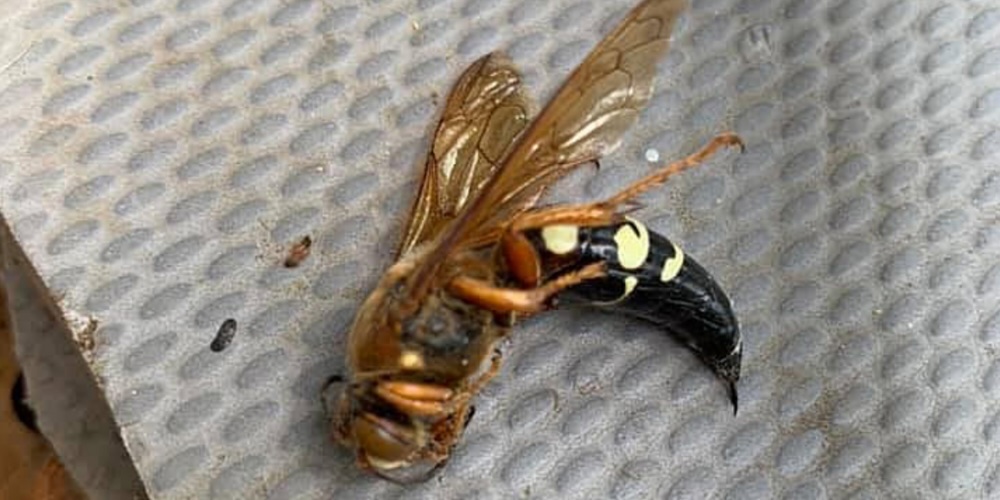Cicada Killer Wasps Could Invade This Summer!

Cicadas! Those buzzing, bug-eyed insects that emerge every few years are due for a grand reappearance this summer. Brood XIII and Brood XIX are getting ready for their big coming-out party, and some reports suggest it might be the largest emergence in over 200 years! But along with these noisy neighbors come another visitor: the Cicada Killer Wasp.
Now, hold on before you grab the bug spray. Cicada Killer Wasps, despite their intimidating name and impressive size (they can grow up to 2 inches!), are actually beneficial insects. Here's what you need to know:
They're Critical to Cicada Control
These wasps are nature's way of keeping cicada populations in check. They hunt cicadas, paralyze them with a sting and use them as a food source for their young. This helps to prevent cicadas from overwhelming trees and gardens.
They're Solitary Stingers
Unlike their social wasp cousins (think hornets and yellow jackets), Cicada Killers are solitary. They don't build elaborate nests or defend a territory. They're mostly focused on catching cicadas and raising their brood.
Leave Them Alone, They'll Leave You Alone
While their sting can be painful, Cicada Killers are not aggressive towards humans and pets. They're more interested in cicadas than a confrontation. Leave them be, and they'll likely do the same.
So, the next time you see a Cicada Killer Wasp, don't reach for the insecticide. They're just doing their part to keep the cicada chorus in check. Let them work their magic, and enjoy the (slightly less deafening) summer!
Tip: Cicada Killers are active during the day. If their presence near your home bothers you, consider waiting until nightfall before heading outside.
Beat FOMO by being in the know!
Sign up for our newsletter today and never miss a beat.







